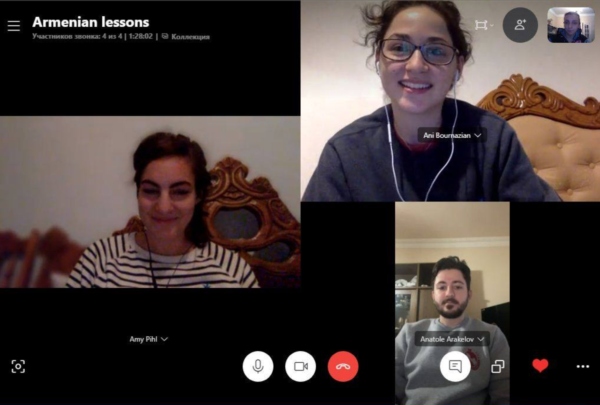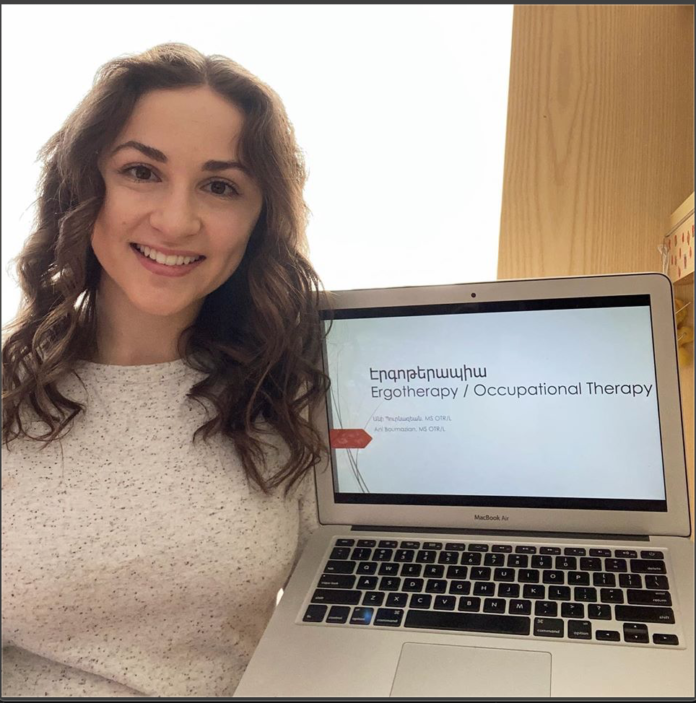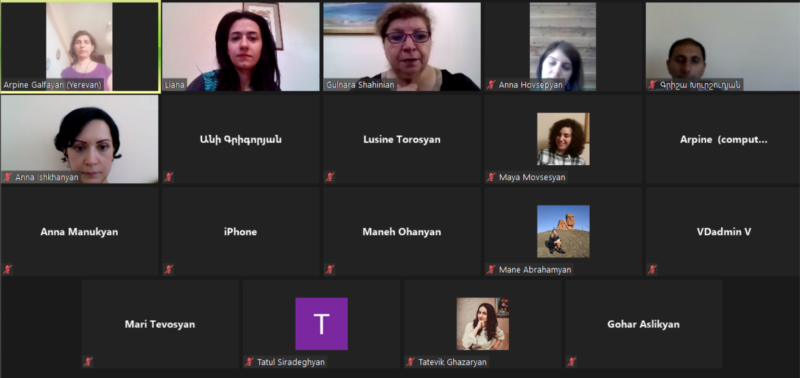By Anaïs DerSimonian
Special to the Mirror-Spectator
BOSTON — Diasporan-Armenian organizations — like their counterparts the world over during the COVID-19 era — have been forced to radically alter their practices to meet social distancing guidelines and travel restrictions. To continue operating at a limited capacity over the last few months, Armenian organizations have moved the majority of their in-person events and meetings to online Zoom video calls, and due to funding cuts in most cases, have been forced to reevaluate which programs are worth pursuing.

Shifting to Online
“When the state of emergency was declared in Armenia due to COVID-19, we had over 70 participants in-country,” says Nelly Poliakov, the marketing creative director of Birthright Armenia, an organization focused on bringing diaspora youth to Armenia to gain professional experience.
“While we couldn’t host new arrivals we had to quickly adjust to upholding their safety. During these times, as during all times, the well-being of our participants was our highest priority. Our transition to online platforms was done within a week — volunteers continued to work remotely with their job sites, our language learning and lecture series also moved online.”









